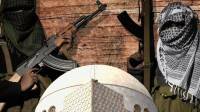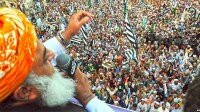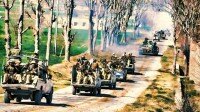In recent months, law and order situation has worsened in Karachi, the commercial and financial hub of the country, especially in the suburban areas largely comprising of Pashtun neighborhoods where various factions of Tehreek-e-Taliban Pakistan (TTP) have joined hands with local banned sectarian outfits and criminal syndicates in order to increase their subversive activities and fund-raising campaigns. The militants have made these neighborhoods as completely ‘no-go areas’ for law enforcement agencies, liberal political activists , polio vaccination teams and non-governmental organizations. On other hand, several anti-TTP militant groups, which are allegedly supported by intelligence agencies, have also opened their fronts in Karachi, further exacerbating the security situation of the megapolis.
TTP militants, taking advantages of ongoing ethnic and sectarian violence, have moved from FATA and Khyber Pakhtunkhwa to Karachi and organized its network. Security analysts and Pashtun political leaders in Karachi attribute the migration of tribal militants to Pakistan’s military operations in the Khyber Pakhtunkhwa and FATA as well as increasing frequent and deadly U.S. drone strikes in FATA.
Since 2009, when military operations commenced in Swat, Mohmand and South Waziristan regions, a large number of militants belonging to TTP went underground and shifted to Karachi. A Mehsud TTP militant admitted that the killing of key leaders of TTP in North and South Waziristan in U.S drone strikes in last three years have compelled the tribal militants to relocate to Karachi.
A number of militants shaved their breads and cut their long hair and worked as petty laborers after moving to Karachi but some of them waited for the right time to organize their network in the city, said Shahi Syed, Sindh president of Awami National Party (ANP), a Pashtun liberal political party.
[ Read full story in the print copy. PIQUE is available at book stores all over Pakistan]
























